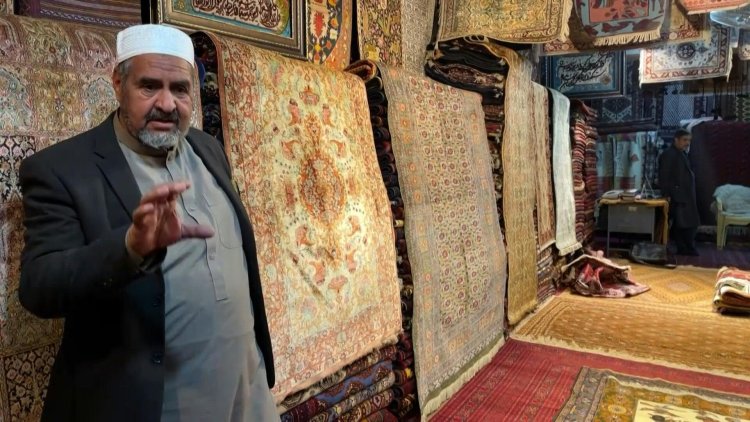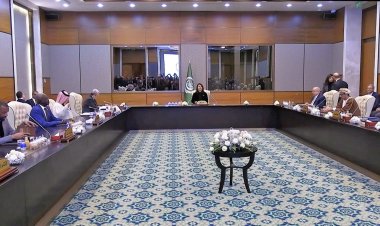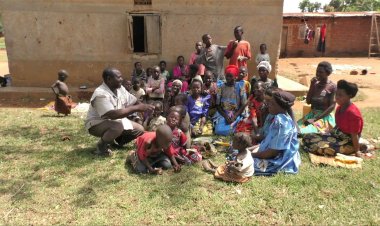Afghan families go back to making carpets as economy unravels

Four Afghan brothers have hauled their family's carpet loom out of storage in the desperate hope of earning a living as the nation's economy teeters on the edge of ruin.
The Haidari brothers now spend their days sitting abreast on a squat bench -- as generations of the family did before them -- weaving the complex rugs for which Afghanistan is famed.
They work long hours each day, keeping a brave face even though there is no guarantee they will have anyone to sell their carpets to.
"We have no other option" to keep the family alive, said Ghulam Sakhi, the 70-year-old family patriarch.
Until August 15, when the Taliban returned to power in Afghanistan, the Haidari brothers had managed to escape the backbreaking labour of carpet making and were running a successful business supplying flowers for weddings.
The hardline movement's austere interpretation of Islam, however, largely put paid to the lavish betrothals so loved by Afghans, and the family enterprise collapsed.
In an act of creativity in the face of adversity, they fell back on their family's rug-making trade.
"Naturally when the Taliban took over... wedding halls didn't have much business. That is why we started carpets again," said Rauf, at 28 the eldest of the brothers who all live and work in Kabul.
"It's a very old practice that our forefathers have passed down to us," he said.
Now they pick strands from dangling spindles of silk before looping them into the warp and weft of the rug with precise, rhythmic energy.
And when the 12-metre (39-foot) carpet is complete, they hope it will fetch up to $6,000 dollars (5,300 euros).















